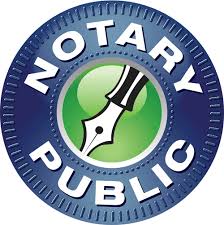NOTARY PREPARATION
Acceptable Forms of Identification Allowed in California
In California, any signer ID allowed under CA law must either be current, or if expired, must have been issued within the past five years. An expired ID that was issued more than five years prior to the date of the notarization takes place may not be accepted. This applies for both acknowledgements and juras.
- California Driver License or non driver ID
- U.S. Passport (or passport card)
- An inmate identification card issued by the California Department of Corrections and Rehabilitation if the inmate is in prison or any form of inmate identification issued by a Sheriff’s department if the inmate is in custody in a local detention facility.
- Driver License or official non driver ID issued by a U.S. state
- Canadian or Mexican Driver License issued by an appropriate agency
- U.S. military ID
- Valid foreign passport from the signer’s country of citizenship
- ID card issuesd by a federally-recognized tribal government
- Employee ID issued by an agency or office of a California city, county, or city and county
- Valid consular identification document issued by a consulate from the applicant’s country of citizenship that meets specific requirements. The consular ID must be current or issued in the past five years, have a serial or identification number, and contain the signature, photograph, description of the bearer. The “matricula consular” IDs issued by the Mexican consulates do not meet these requirements and cannot be accepted as satisfactory evidence of a signer’s identity in California.
- Oath or affirmation of one or two credible witnesses.
Know What Type of Notary You Need
Notarizations come in three typical forms: Acknowledgements, Jurats, & Copy Certifications. A Notary is appointed by the state as a ministerial official and is not allowed to advise you on the type of notarization you need. You must be able to tell the Notary what type of notarization you need. Before you visit the Notary, you should review the types of notarial acts and confirm with the document drafter or receiving agency to determine what type of notarization they require. If still in doubt, an attorney can guide you.
Make Sure the Document is Complete
For a Notary to perform a notarization, the document must be complete and not have any blank spaces. Blank spaces on a document can make that document susceptible to fraud after the notarization has been performed.
Make Sure All Signers Are Present for Notarization
In order to have their signature on a document notarized, a signer must be physically present before a Notary. Make sure all signers are available and can attend your notary appointment. Signatures cannot be notarized over the phone or via video calls such as Skype and Facetime.
Make Sure That the Signer is Willing and Aware of What they are Signing
Screening document signers for willingness and awareness is one of the basic duties of a Notary. The Notary will check to make sure that you are alert and mentally aware at the time of the notarization. They also make sure you are signing the document voluntarily and not under duress. For elderly or ill signers, it is important to make sure you are aware of what your transaction is about. If you are not sure that you want to sign, address these issues before you go to the Notary.
Have a Valid ID and Make Sure it Matches the Name on the Document
It is very important that your name on the ID you are using matches your name on the document. If you have recently changed your legal name due to marriage, divorce, or other reasons, make sure you bring an ID which matches your name on the document. If there is a significant descrepancy – for example, your name on the ID is Jane Doe but your married name on the document is “Jane Doe-Smith” – then the Notary will not be able to notarize the document. You will ahve to provide an alternate acceptable form of identification that matches the name on the document.
Understand That the Notary Cannot Advise You on Legal Matters
Notaries are strictly prohibited from giving any legal advise to signers unless they are qualified attorneys. Notaries cannot fill in part of the document except the notarial certificate wording, choose what type of notarial act is needed on your behalf, or advise you on the legal effects of a document.
